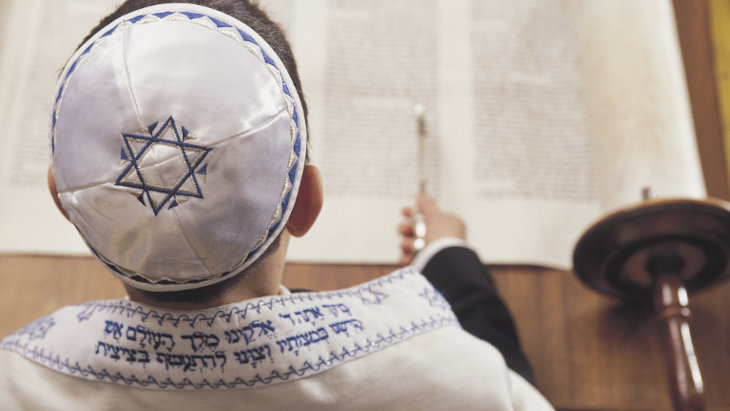 Iran’s Attack on Israel
Iran’s Attack on Israel


5 min read
4 ways wearing a kippah is like a wedding ring.
A Kippah is a small hat traditionally worn by Jewish men. The Kippah is worn at all times, aside from when sleeping and bathing. Check out our dedicated articles about the source and origins of a Kippah, the different types of Kippot (plural for Kippah), and explore our video page about the significance of the Kippah.
The Yamaka (also spelled ‘Yarmulke’) is the Yiddish word for a Kippah. It translates to mean ‘skullcap’ and was a word used by Eastern-European Jews. Others are of the opinion that it originates from the Aramaic words, ‘Yarei Malka’, “Awe of the King,” referring to God.
The first time I recall having a real discussion about a Jewish head-covering, often referred to as a yarmulka or kippah, was when I was a staff member in Camp Nageela East. As part of the rules, everyone was required to wear a kippah for meals and prayers and Guy, my 15-year-old camper, said to me, “I don't get why we have to wear a kippah. I've heard that it's a reminder that God is above us, but I'm aware that God is here even without wearing one.”
Guy had a good point. If I truly feel connected with the Almighty, then what would be the purpose in wearing it? After all, I already know He's here.
After taking some time to think, I realized that a kippah is a lot like a wedding ring.
Around the world, a simple ring has become a symbol and reminder of one's commitment and values in life. A married couple may feel very connected without it, but wearing that ring makes a big difference.
There are four key aspects that a wedding ring represents:
1. Commitment: Wearing a wedding ring signifies the commitment that “through happiness and health, pain and joy, struggles and celebration, I will work hard to do whatever it takes to provide for your needs and make you happy, ‘til death do us part. I am committed to you, forever!”
2. Trust: By wearing the ring, a spouse makes the statement that "I am trustworthy, and I trust you! Your faith in me is always on my mind, and this ring will be a constant reminder to overcome any temptation that comes my way. I am loyal to you, forever!”
3. Love: A wedding ring expresses the emotion that one has for a spouse. “I love you more than anything else. You complete me. You are with me everywhere I go, and are a part of all that I do. You are my heart, my soul, my everything!”
4. Pride: Wearing a wedding ring in the open announces: “I am so proud to be married! Nothing makes me smile more than knowing I am connected to you. Just thinking about you fills me with pride and makes me want to announce it to the world.”
All four ideas apply to wearing a kippah.
It’s amazing how a simple piece of cloth has become a known symbol and reminder of one's commitment and values in life. Yes, we may feel very connected and know God is here, but wearing that small, simple skullcap makes a big difference. It represents making a commitment that through happiness and health, pain and joy, struggles and celebration, I am devoted. I will work hard to do what is right 'til death do us part. I commit to my relationship with You, God, forever.
Wearing a Kippah makes a statement that “I am trustworthy, and have trust in You, God. I know that You have faith in me, and this kippah is a constant reminder to overcome temptation in difficult situations. I will remain loyal to You!”
A kippah expresses the emotion that one cherishes in their relationship with the Almighty. “I love You more than anything in the world! I know You are with me wherever I go, and I think of You at all times."
And wearing a kippah out in the open announces: “I am so proud to be connected with You. Nothing makes me smile more than knowing we are together. I’m not afraid of people knowing that I am a committed Jew. I won’t hide this passion away. Just thinking about You fills me with pride and self-confidence every day."
The world can pull us in many directions. It's so easy to get distracted. Choosing a significant mnemonic device, like a kippah on one's head, can help us remain committed, trustworthy, loving and filled with pride.
The word Kippah means ‘dome’, when literally translated from Hebrew to English.
A Kippah and a Yamaka are both words referring to the small head covering that is traditionally worn by Jewish men. ‘Kippah’ is a Hebrew word and ‘Yamaka’ is a Yiddish word.
